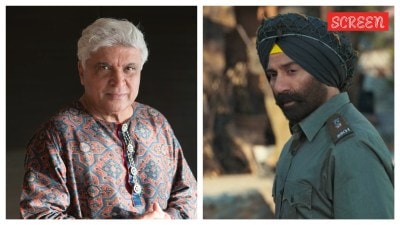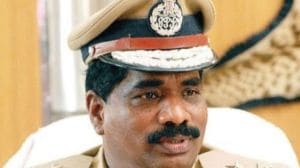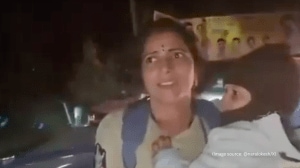Letter from the Editor
Vinod Mehtas memoir is a heady mix of scandal,gossip and scoops even if the Outlook story is a bit too self-congratulatory and over-hyped
Lucknow Boy: A Memoir
Vinod Mehta
Viking
Pages: 305
Rs 499
Heres the first problem I have with Vinod Mehtas memoir,Lucknow Boy. His editorship of Outlook magazine,on which much of this book is based,is not under threat,unlike his earlier stints as a newspaper editor. He has some years to go before he mothballs his Montblanc pen. So why a memoir now when there are presumably more politicians to expose,more scoops to unveil and more celebrities to lampoon? The answer lies in the changing nature of publishing in India as well as the role of the editor of an established national publication. Book publishing in India has become hugely competitive and the hunt for authors who can sell is intense,even predatory. Mehta is a prime target mainly because,as he writes in this book,My tombstone might read: here lies the most sacked editor in India. He wears that title almost like a badge of honour. Indeed,the stories behind his frequent ejections from the editors chair does give him a huge bonus in terms of saleability and publishing hype.
The other reason,of course,is that editors of leading publications no longer stay at arms length from the people they write about,prime ministers,cabinet ministers,film stars,celebrities,industrialists and others who contribute towards our daily diet of current affairs,pun intended. Editors rubbing shoulders with the power elite is great for the ego on both sides. The bonus is of course the juicy stories that emerge from such close encounters if editorial integrity has been maintained without too many compromises,especially if the VIPs being written about have RIP after their names. Mehtas memoir has some such moments of pressure and compromise but thankfully they are few and far between. He has also spent 40 years in the profession and,through fate and circumstance,became editor at a very early stage. That gives him enough material and motivation to write his memoir and,perhaps,leave the door open for a sequel.
I also have a problem with the title. For all the hype on the book jacket about scoops,revelations,scandals and encounters with the high and mighty,Lucknow Boy is almost an anachronism. In fact,the reason the book starts with a slow burn is his early years growing up in Lucknow. Readers eager to hear about his inside stories on former prime minister Atal Bihari Vajpayee and other notables,as well as his being sacked from the editorship of four newspapers and the reasons for that will have to wait till page 79 and Chapter Three. Nostalgia is a seductive mistress and we are given a guided tour of Lucknow in the early 1940s in the company of Mehta and Friends. Mehta has an easy and languid writing style but the early part of the book does get a tad tedious. The first hint of scandal arrives much later,when he travels to England and,while working in a factory,meets a Swiss girl and gets her pregnant. She refuses an abortion and returns to Switzerland and we are left with the tantalising vision of a daughter and heir who Mehta was never allowed to meet or acknowledge he has no children of his own from two marriages.
Of course,there is the delectable irony that shortly after returning to India,his first media assignment was as editor of a floundering magazine called Debonair,Indias answer to Playboy! Thats where the pace picks up and the plot gets meatier. Debonair did gain traction under Mehta,attracting some of Bombays best literary talent though the famous centrefold subjected him to no end of embarrassment. Debonair was not of much help on any ambitious journalists CV but it did reveal Mehtas natural aptitude to uncover and mentor talent,something that would contribute majorly to his future career graph. It also gave him a reputation as a successful editor,having revived Debonairs financial status. It would lead to stints as editor of a succession of daily newspapers,two of which he launched from scratch. The others were existing publications which he overhauled,earning a reputation for combining good writing with good design and readability. Not all were successes and ended in confrontations with their industrialist-owners.
His longest stint as editor has been with Outlook,which he launched in 1995 along with media marketer Deepak Shourie and which was financed by real estate tycoon Rajan Raheja. Understandably,it accounts for a major portion of the book. Mehta reveals the stories behind some of the magazines exclusives,intimate details about people like Vajpayee: Vajpayee was no saint. He liked to drink moderately and eat non-vegetarian food less moderately. Being a bachelor and a political star8230; he was never short of female company. He goes on to reveal that Vajpayee,before he became PM,used to sneak off to New York where Brajesh Mishra was posted,and get up to all sorts of naughty things. There are also juicy stories on Vajpayees foster family and their clout in the PMO and on notables like Narasimha Rao and Sharad Pawar,apart from his personal take on people like Sonia Gandhi,V.S. Naipaul,Salman Rushdie,Shobhaa De and other celebs and VIPs he has encountered. The book ends with the Radia tapes and Outlooks role in the messy 2G scandal.
Its a heady mix of scandal,gossip and scoops. Mehta,as anyone who knows him will testify,is an engaging raconteur and this book makes for compelling reading. What grates somewhat is that his Outlook story is a bit too self-congratulatory and over-hyped,he gives little credit to the man who really started it,Deepak Shourie,who had come from Outlooks main competitor India Today This reviewer worked in India Today. Mehta also ignores Maheshwar Peri,publisher of Outlook magazine and president of Outlook Publishing India Pvt Ltd,under whom a string of other spin-off magazines were launched. In fact,Mehta completely ignores the other publications under the Outlook banner despite some being successful and well established. It is a glaring omission and one that Mehta could easily have avoided. He also could have avoided putting his own book on the cover of the latest issue of Outlook with a flattering photo of himself. Yet,this is a personal memoir so Mehta is entitled to his own version of the facts and his choice of platforms. There is also very little about his personal life,his wives or close friends or his favourite foods,destinations,movies,books,et al. Instead,we get more on his dog,Editor,who seems to have endeared himself to the original.
For all that,this is a highly readable and enjoyable book,aided by Mehtas self-deprecating style and candid confessions on his personal and professional life. Todays editors are as powerful and feted as anyone else in the power lists that magazines bring out periodically and it gives them unprecedented access to the people the rest of us love to read about,whether Page 1 or Page 3. Mehtas book is a breezy read with lots of salacious stuff between the covers to convince readers that there is great value for money.
- 01
- 02
- 03
- 04
- 05































